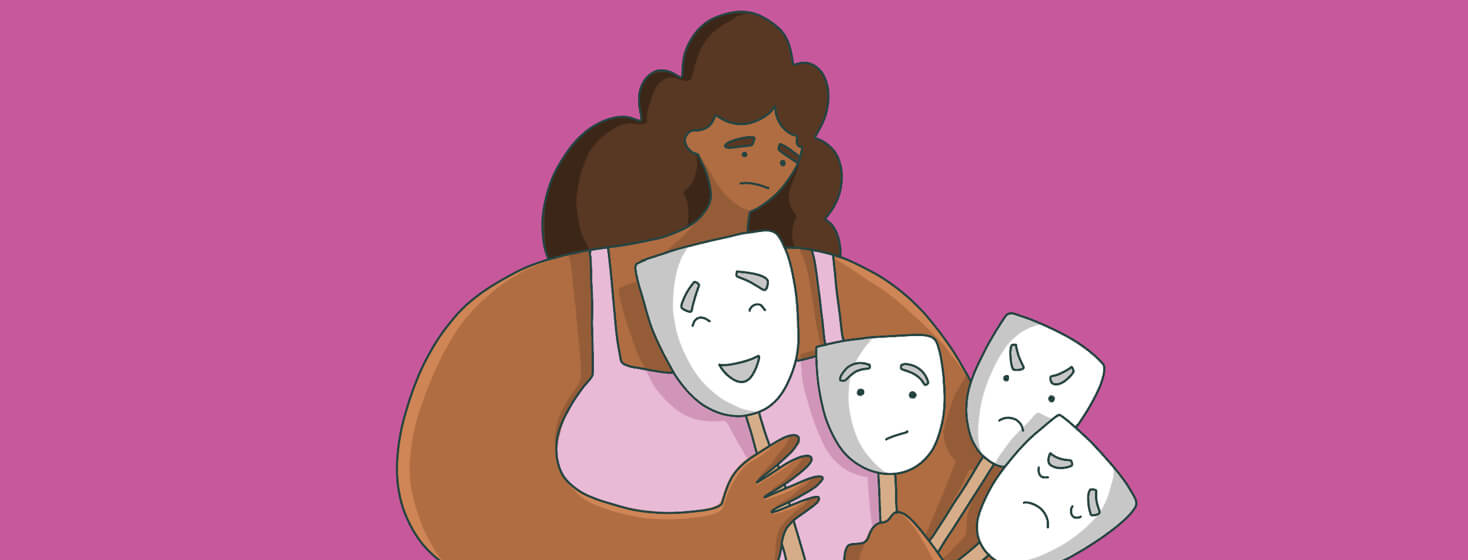I'm Fine, OK
Have you ever had one of those days when everything is going wrong? Your scans are terrible. Your doctor pulled you off the latest line of chemo, but they have no idea what your following medication will be. Your body has been forced into menopause either medically or surgically, but you're expected to not get too emotional. It's hot. It's cold. It's hot. It's cold. You feel bloated and unattractive. You are in pain. The chemical cocktail in your body is partying like it's 1999, yet you haven't changed your clothes in three days. It wouldn't take your mother to tell you that you are a hot mess.
Feeling uncomfortable
As if all of that wasn't tough enough, inevitably you find yourself at some point this holiday season in front of some old friend or acquaintance hearing those dreadful words that, for some reason, we are never prepared for, "So, how have you been?"
Usually, I start out thinking that my story is interesting, then I see the horror on the other person’s face as they're trapped, listening to my now endless tale. Believe it or not, most people are not prepared to talk about cancer at a holiday party or when they run into someone while shopping.
If you are better than I, you can hold back the tears. If you are better than that, you can hold back the inevitable verbal diarrhea that shoots from my mouth, leaving a stain on their shirts like a sad reminder of the chemo that is currently making me delirious.
Holding it in
Still, trying to hold it all together, even though my mind is rife with existential questions like "what will happen after I die," or "what is my purpose here on earth anyway.” I want to ask them what they think will happen to our souls after we die, but at least I know when to stop. At least that's what I am learning from the uncomfortable exits as friends slink away from my conversations.
And from the look on my loved one's face, when, with begging eyes, I look to him for a morsel of unconditional generosity, a few kind words or a gentle touch to settle the neurons in my brain and to make me feel like it was alright. Instead, all I get is a glare of embarrassment. "This is why your friends don't want to talk to you," followed by a look of disgust.
Calming myself down
The 4-7-8 deep breathing exercises that my therapist taught me to achieve homeostasis have stopped working. Neurons start firing so fast that I can see them spark when I close my eyes. My heart rate goes up, but what can I say? I want to scream, but that will do no good. So I let the vortex pull me in, where it feeds on the mixture of negative thoughts and those existential questions. The sum of the two is becoming more horrifying than its parts. Then, contemplations of having no purpose and no longer deserving the life-extending medication swirl their way into my thoughts.
Eventually, I shake myself out of it. I know I belong because the more people I talk to in my situation, the more I find that we all feel this way at some point. The darkness, solitude, and endless spiraling are side effects of the medication, another ungodly bit of torture that we all face in the name of "getting better", which is why we need each other so much. And it's why we need some battle plans to get through things like this seemingly simple question of, "How are you?"
I'm fine becomes the universal answer
I hate to tell others that answering "I'm fine" is, well, fine. But sometimes, short and sweet will get you out of there unscathed. On the contrary, Becky H. from the support group I attend (Bay Area Young Survivors found at BAYSnet.org) says, "I think it boils down to this - what is the person *actually* asking when they say "how are you?" I think the real problem is that this question is simply far too vague. We live complex lives, and complex lives require thoughtful, specific questions."
I am trying to get better myself; when I am quick, I usually respond with, "That's a loaded question," laugh, and leave it there. Most people don't try to follow up. Or, if I'm feeling particularly punchy, I ask if they "want the short version or the extended version," and the short version being, "I am fine."
Often it is a case of reading the room. How close are you to this person? What is the environment? Whatever way you tackle this situation, it's best to plan for these types of scenarios, so you don't get caught off guard. And remember, there is no messing up. Half the time, they will probably blurt out something insensitive about someone they knew that died from breast cancer anyway.
Here I am just describing one event that causes me to spiral out. What other events cause you to spin out?
How do you deal with this question? "How are you?"
Editor's Note: We are extremely saddened to say that on September 6, 2023, Vicki Thompson passed away. Vicki's advocacy efforts and writing continue to reach many. She will be deeply missed.

Join the conversation